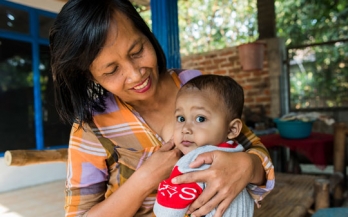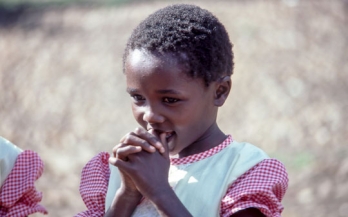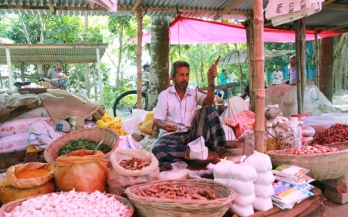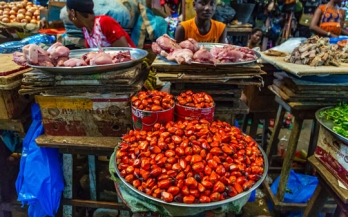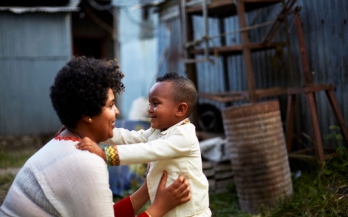This paper describes an innovative behaviour change communication project, implemented as part of the Baduta project, including rationale and early impacts. Baduta was a multi-component project developed by the Global Alliance for Improved Nutrition (GAIN), together with partners, to improve maternal and infant nutrition.
Food systems are essential to delivering healthy, affordable and sustainable diets, but the nutritional needs of children and adolescents are often not prioritised. UNICEF and GAIN co-hosted a global consultation on children, adolescents and food systems in November 2018.
A market assessment was conducted in Mozambique in 2015 across eight market hubs strategically selected in different regions of the country. These results help propose a plan for effective monitoring of fortified foods on the market.
In 2014, a Fortification Assessment Coverage Toolkit (FACT) survey was conducted across the state of Telangana, India. The main objectives of the survey were to determine the coverage of the take-home rations produced by AP Foods among target children and identify the major programme barriers and formulate recommendations for future programme activities.
A cross-sectional market survey was conducted to assess the presence of edible oil brands, including imported and locally produced brands and unbranded oils in selected markets across the eight divisions of the country, and to compare the vitamin A content of the edible oil brands with the national edible oil fortification standards.
A spatially representative state-wide survey was conducted in the state of Rajasthan, India, using the Fortification Assessment Coverage Toolkit (FACT) in 2013-2014. The objective of the survey was to assess the household coverage of atta wheat flour, edible oil, and salt.
A mixed-methods process evaluation was carried out to identify strengths and weaknesses in implementation, processes, and uptake of a micronutrient powder programme in Bangladesh.
A market assessment was conducted in Burkina Faso in 2017 using the Fortification Assessment Coverage Toolkit (FACT) methodology. It was carried out across eight market hubs strategically selected in different regions of the country.
In 2014, a Fortification Assessment Coverage Toolkit (FACT) coverage survey was conducted in Abidjan, Côte d’Ivoire. The main objectives of the survey were to determine the coverage of the fortified complementary foods among children 6-23 months of age in Abidjan and identify the major barriers to coverage of this programme and to formulate recommendations for future programme activities.
This project aimed to improve complementary feeding practices through the delivery of a micronutrient powder (MNP) and behaviour change communication messages distributed through the public health system. The objective of the endline survey was to examine the effectiveness of the programme by comparing the results of key outcomes indicators to those from a baseline survey in the same population.
